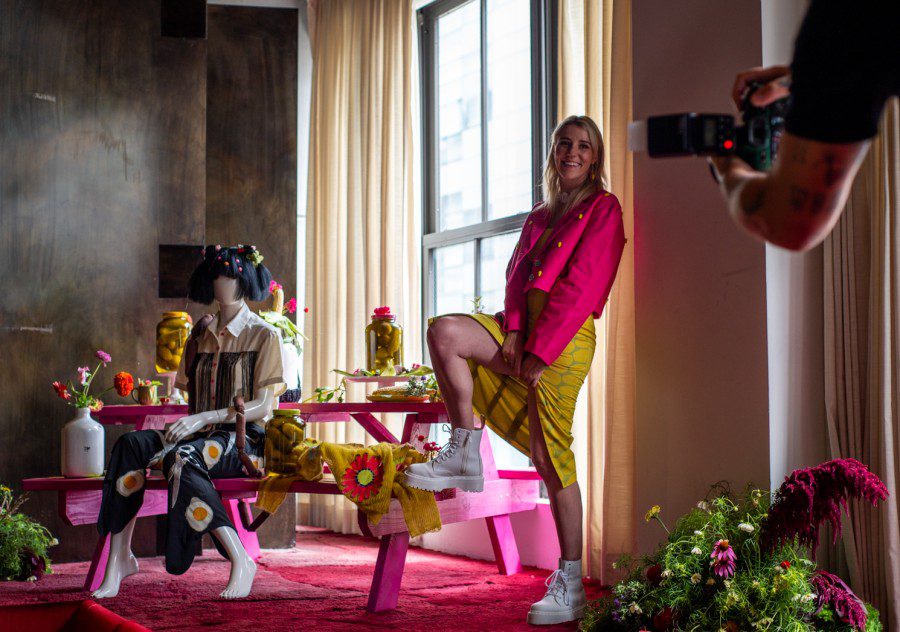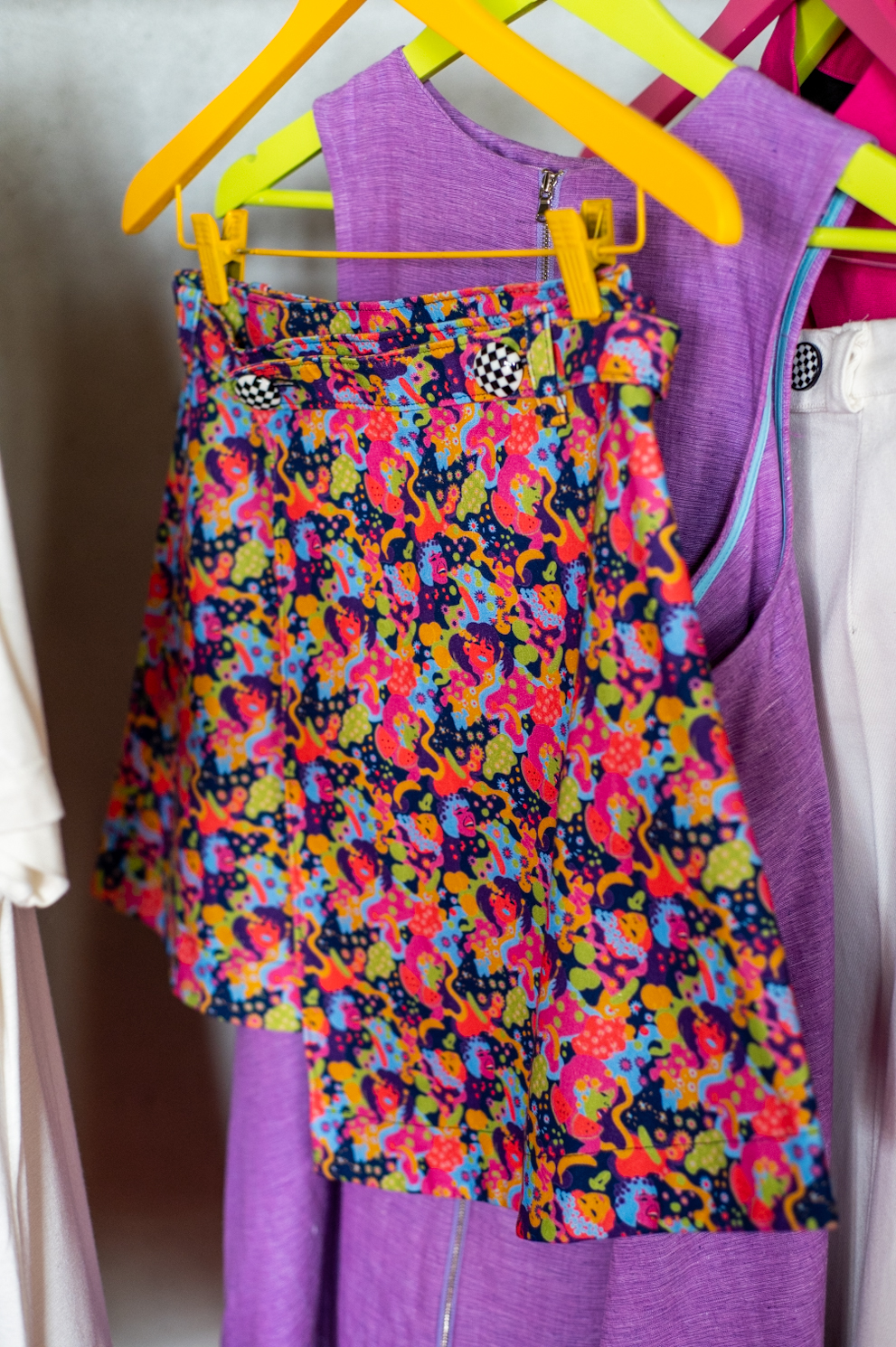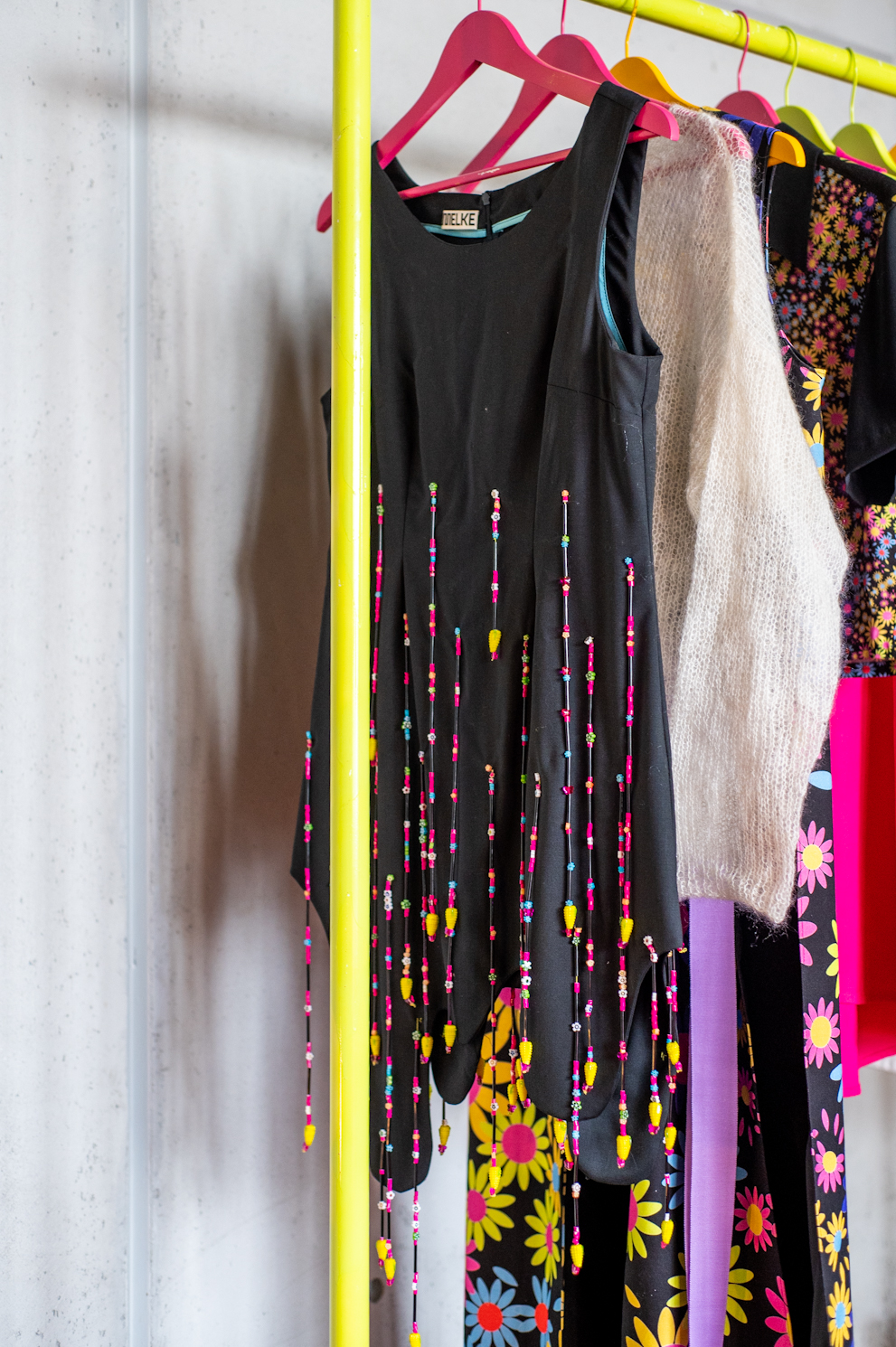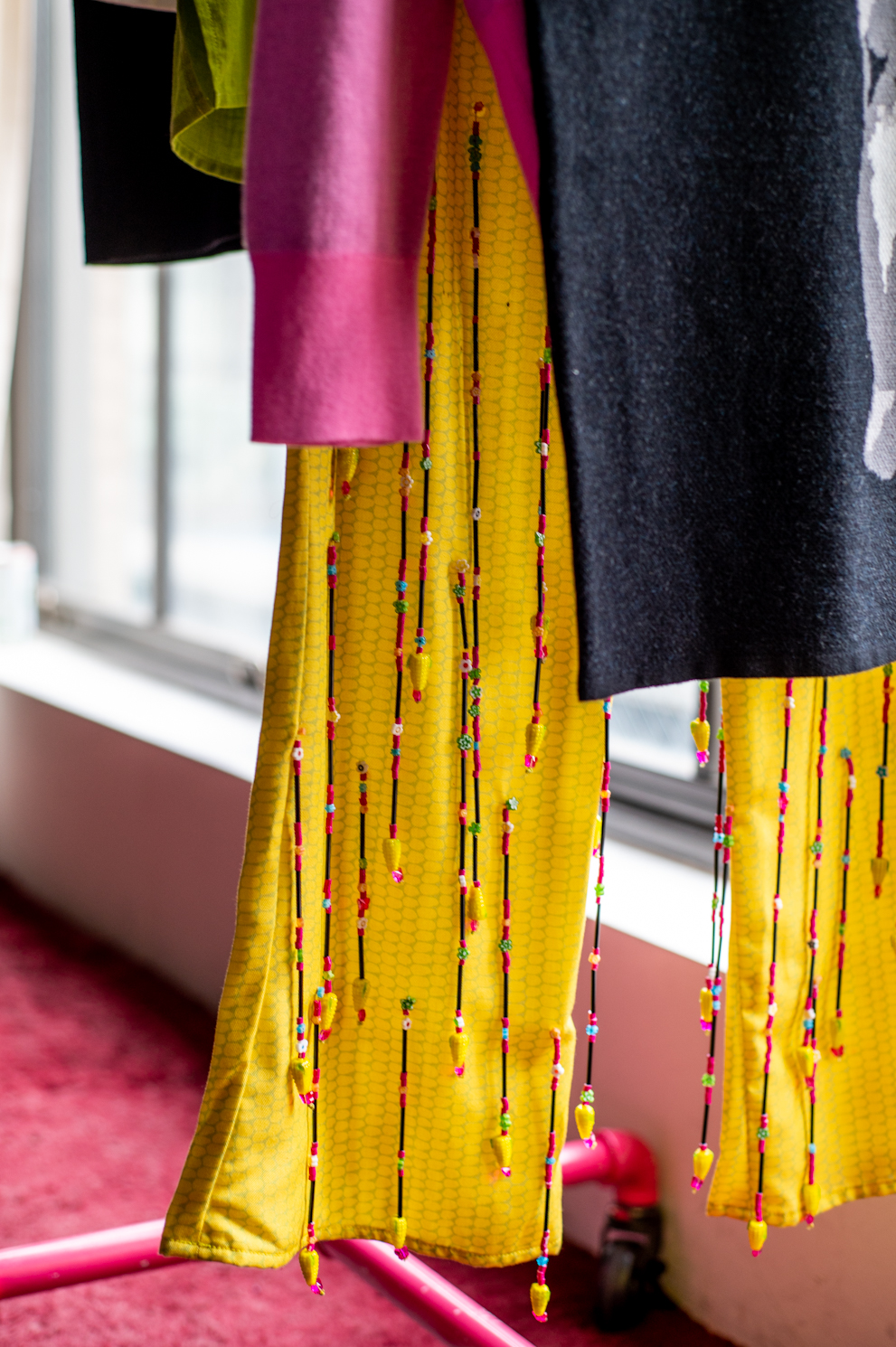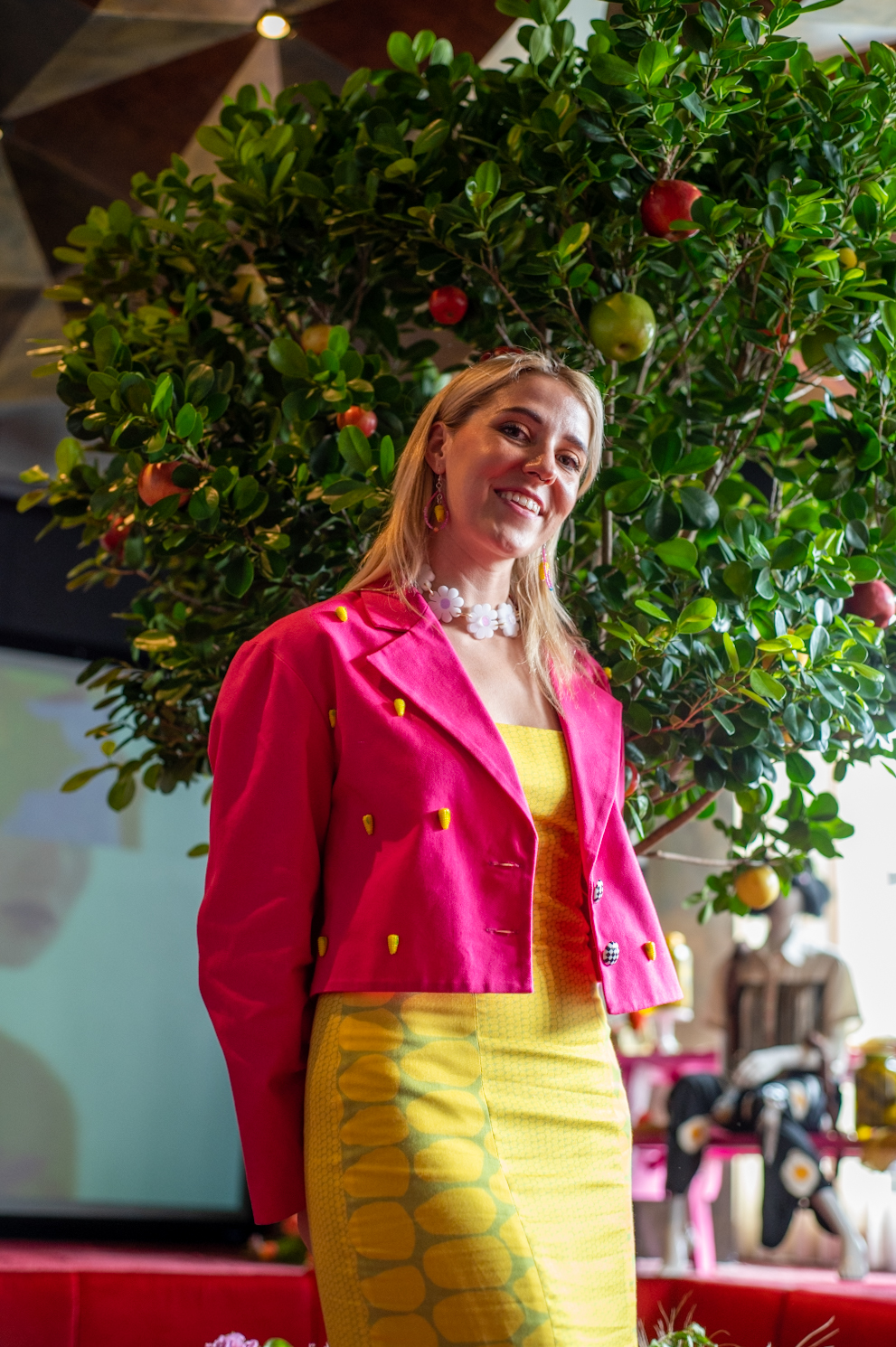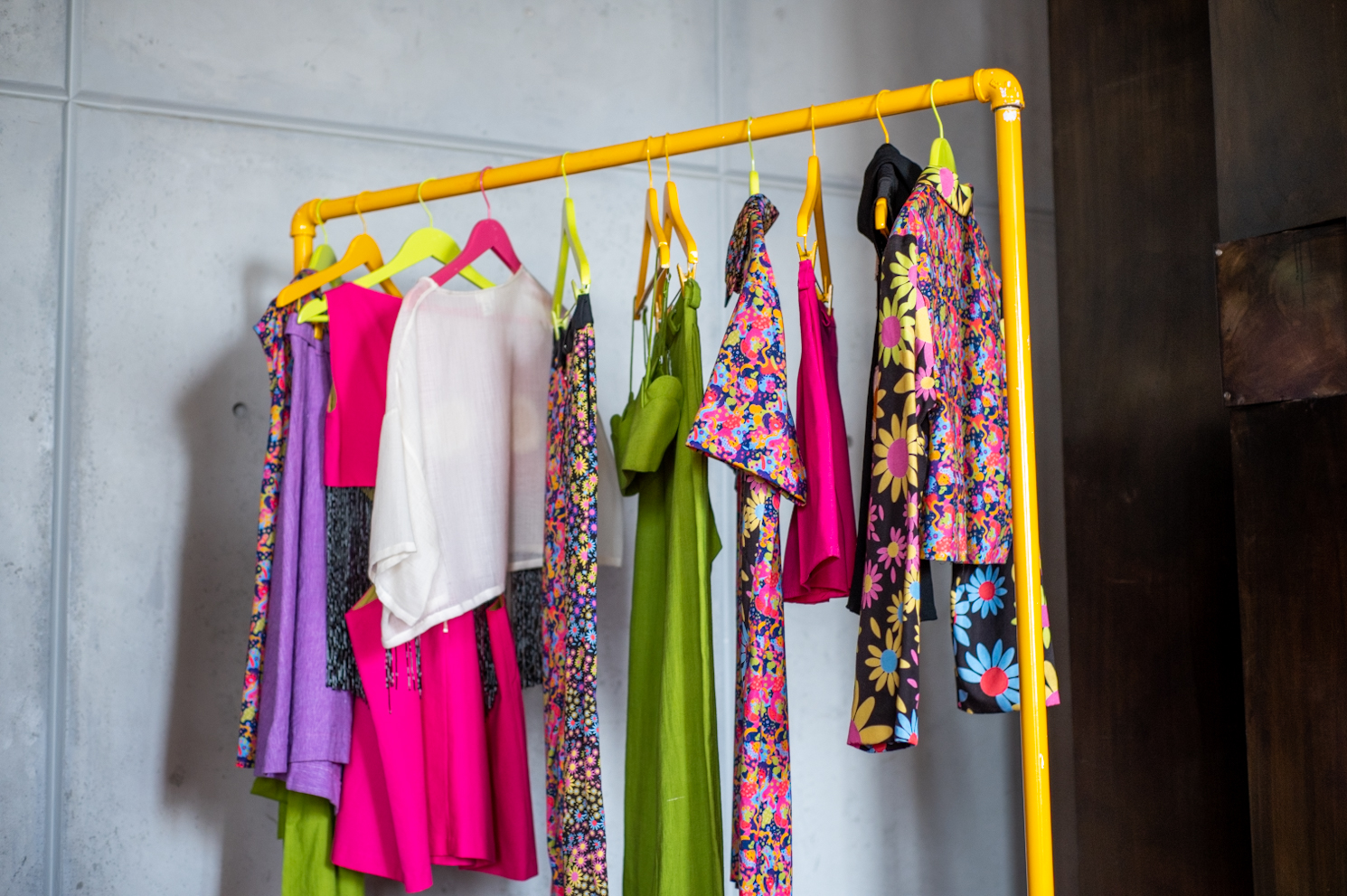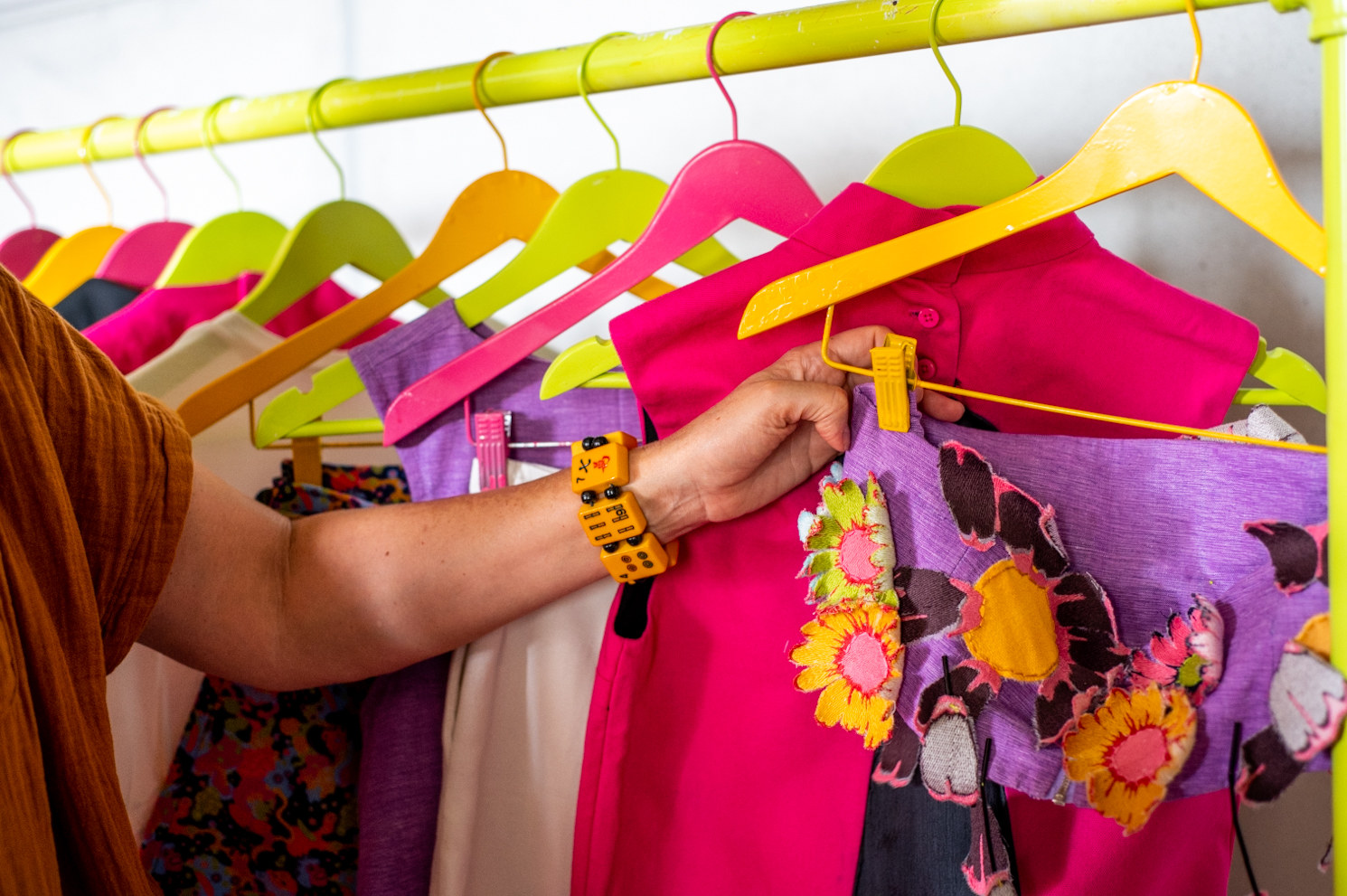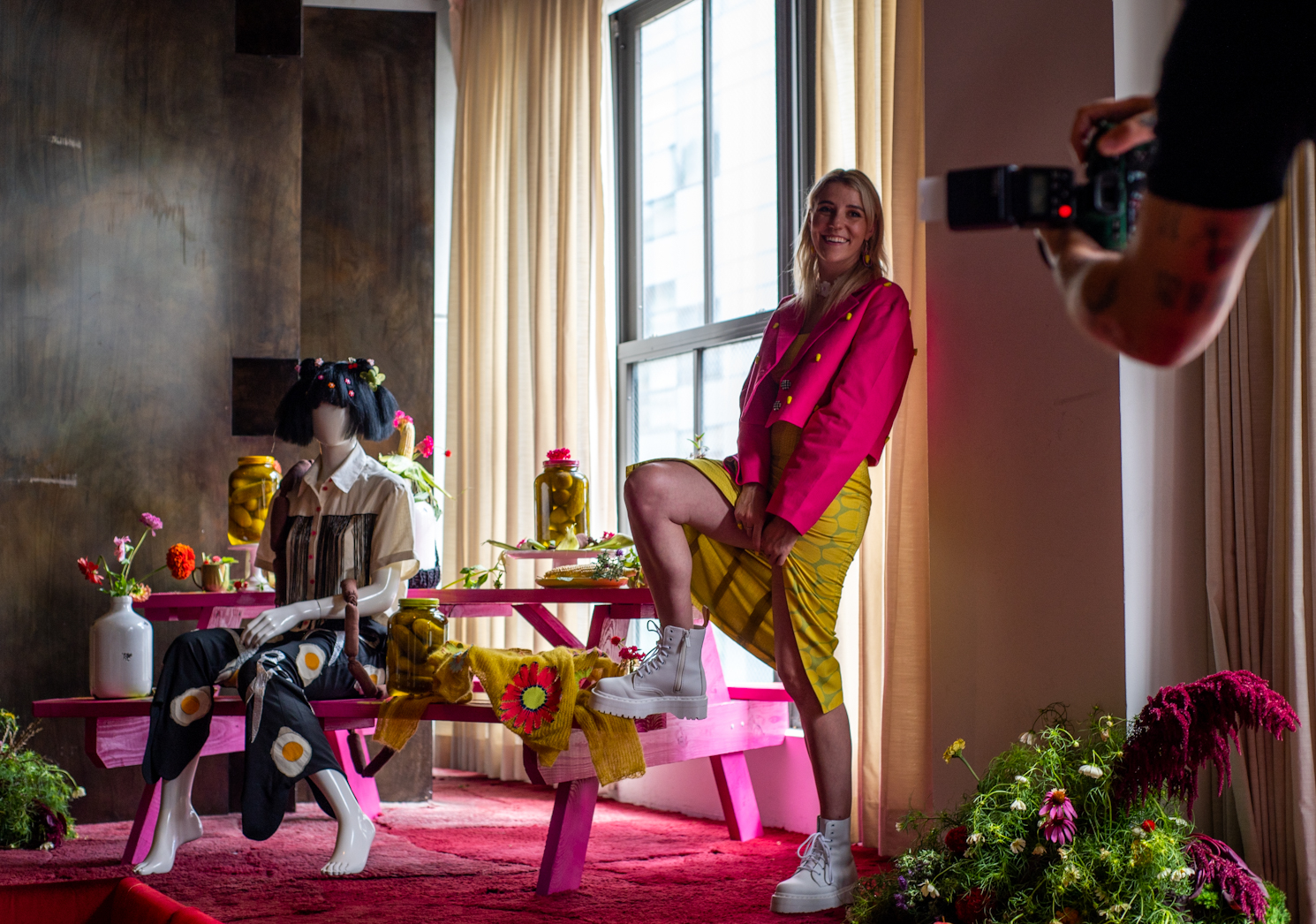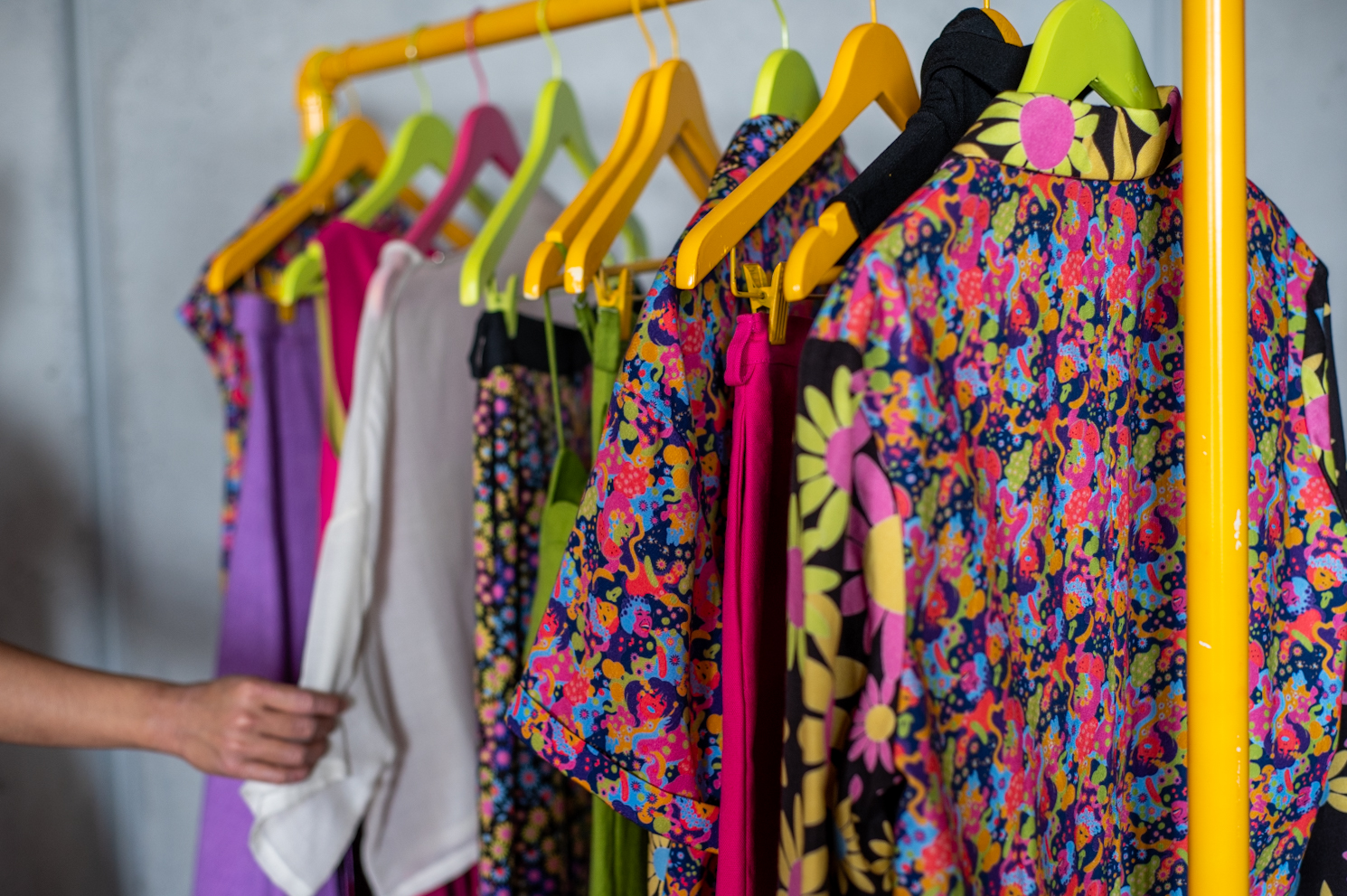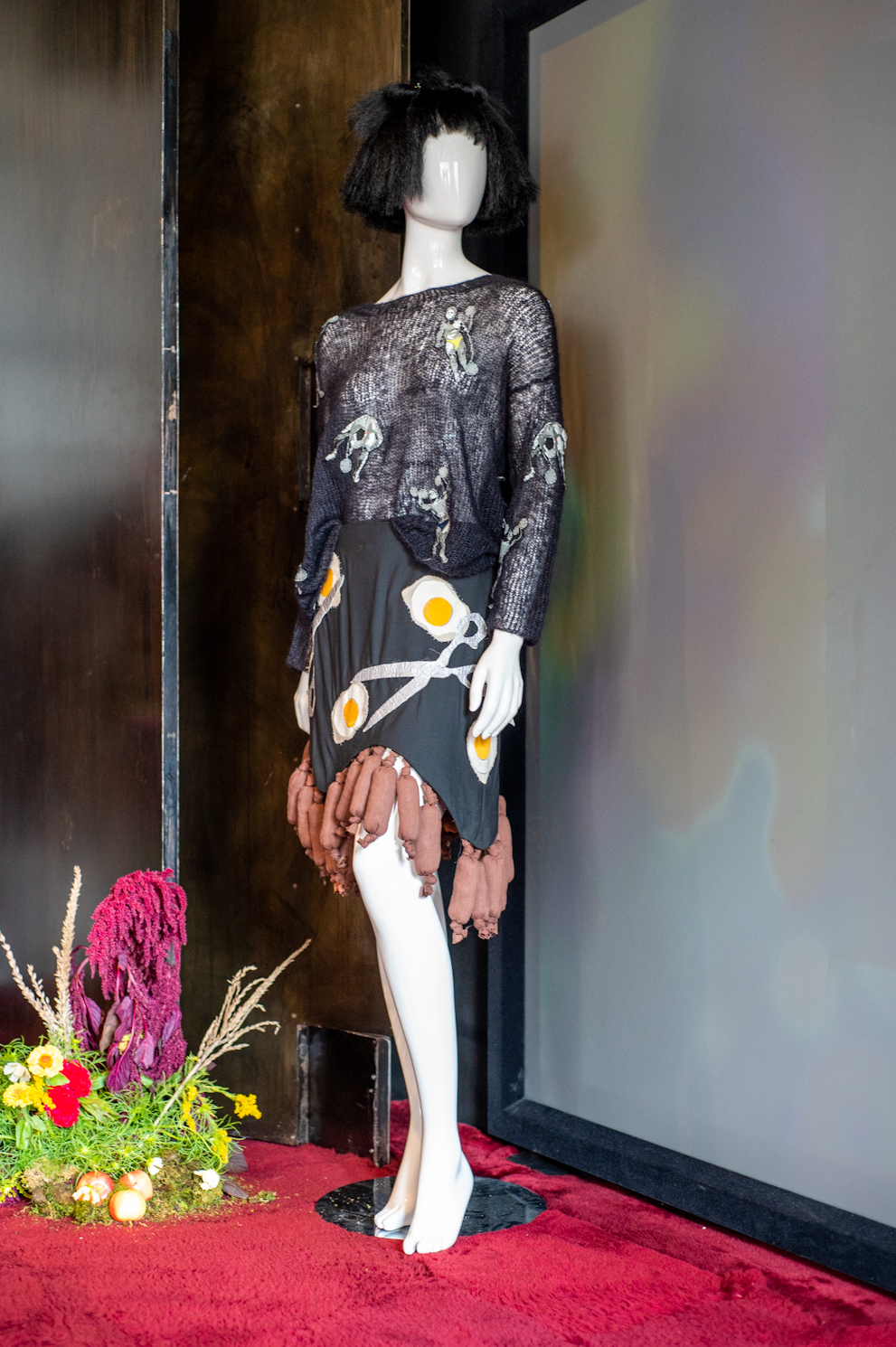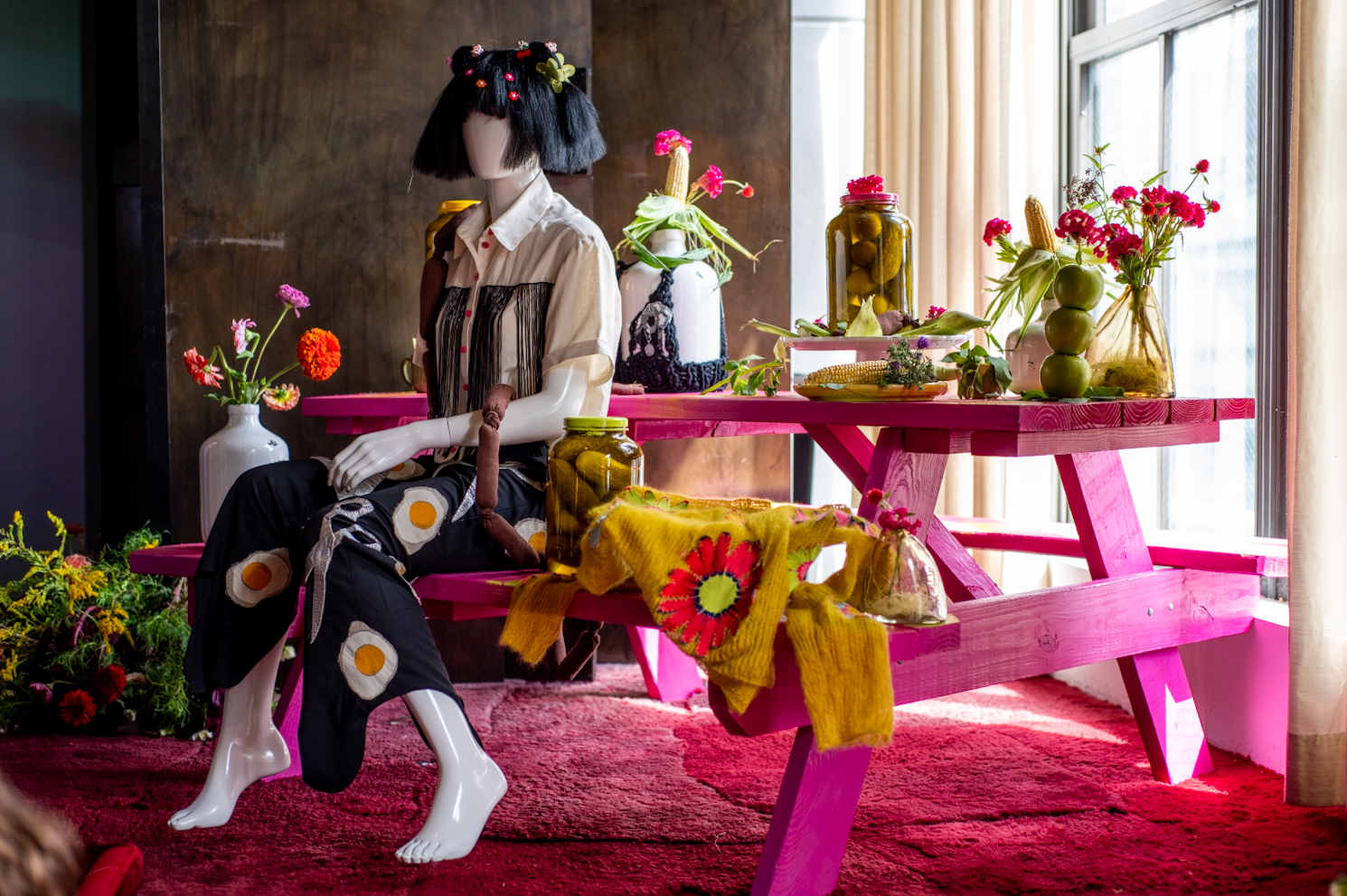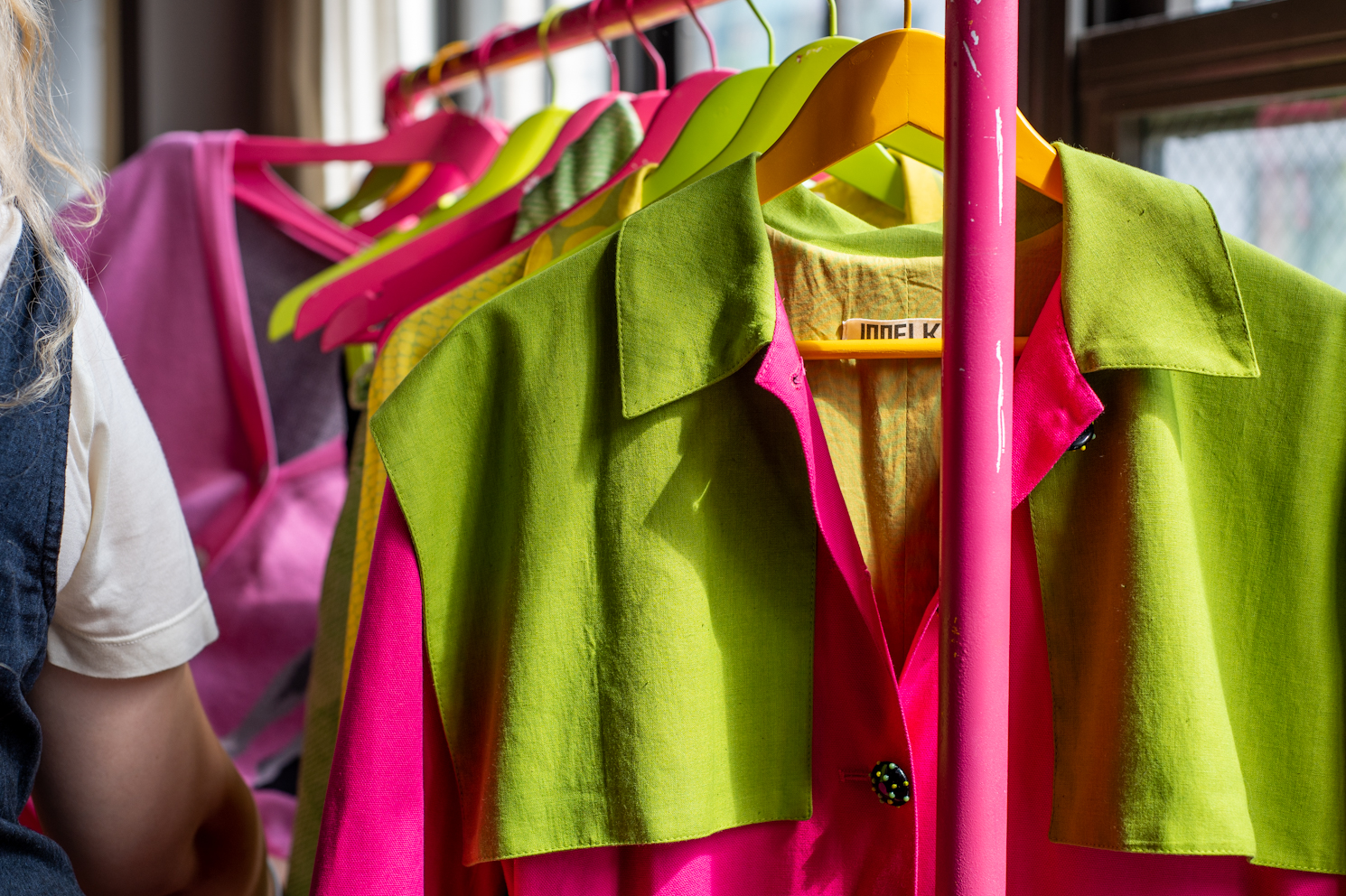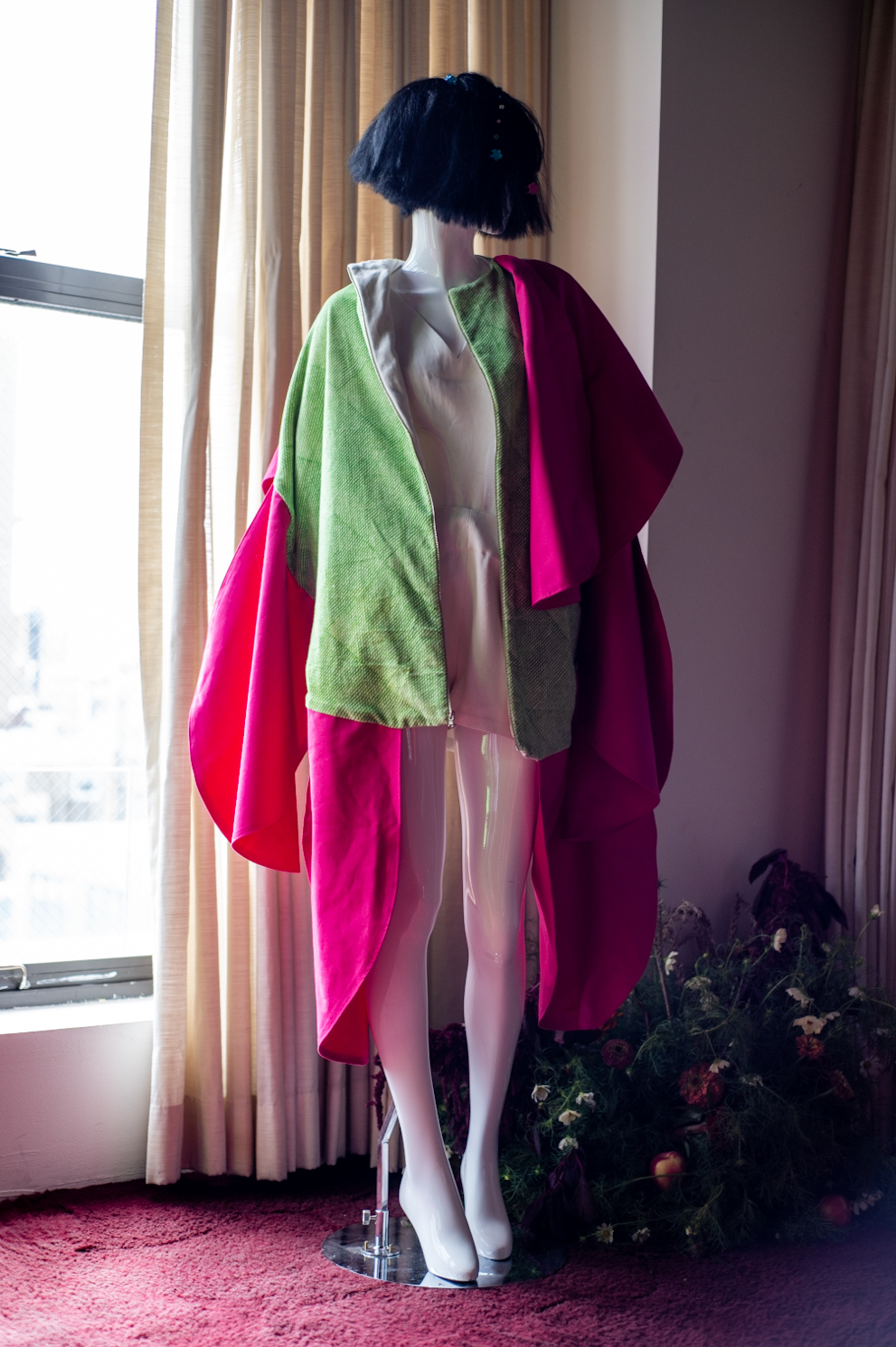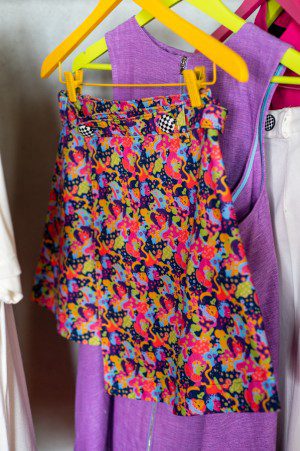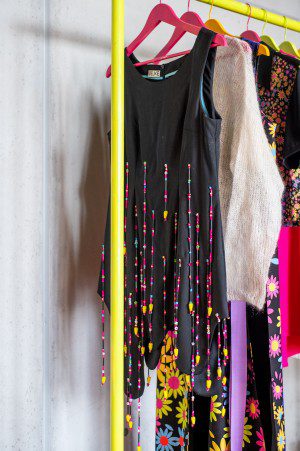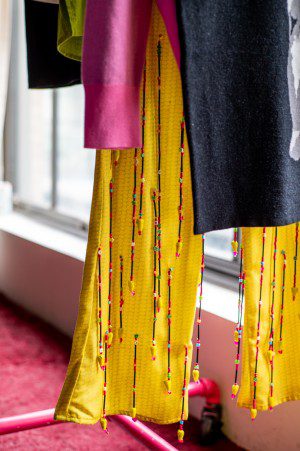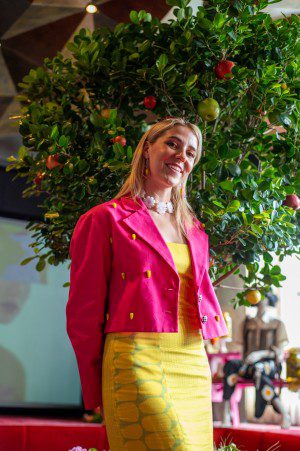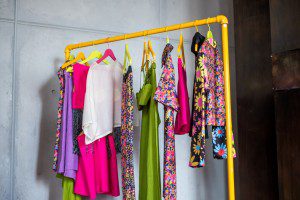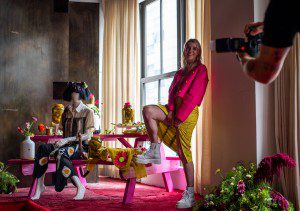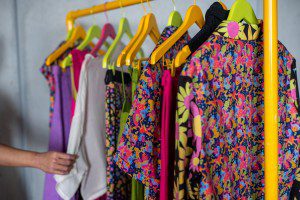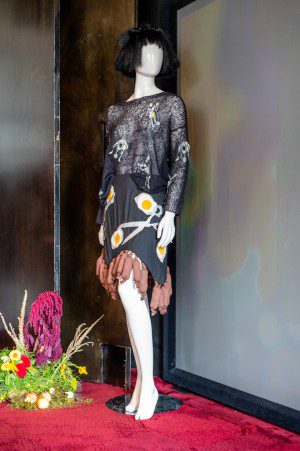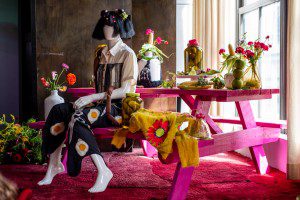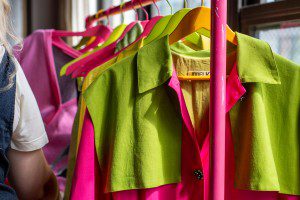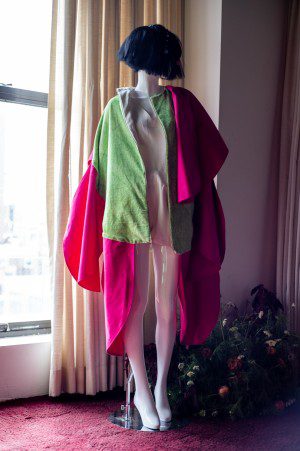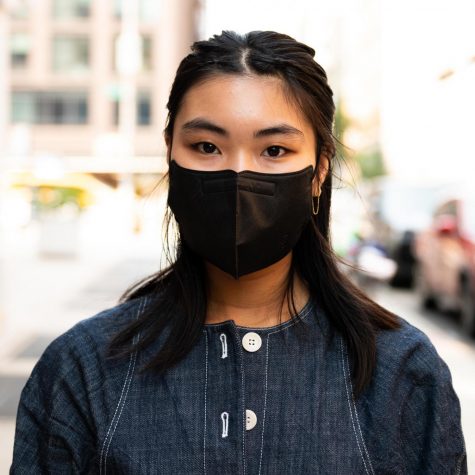Melke combines playful wearability with crafty sustainability
Got Melke?
Emma Gage, the founder of Melke, poses for photos in the Sunken Living Room in Spring Studios. (Manasa Gudavalli for WSN)
September 19, 2022
Melke, named after the way Midwesterners pronounce “milk,” was founded in 2020 by Minneapolis native Emma Gage. Gage is a two-time winner of the Kate Spade and Company Foundation Scholarship, and her work focuses on sustainably produced and gender-fluid ready-to-wear luxury fashion. Gage blends non-profit work and fashion together by creating awareness around sustainability and advocating for garment workers’ rights through her brand. This season marked Gage’s second show at New York Fashion Week, this time at an all-day showroom at Spring Studios.
Melke’s Spring/Summer 2023 collection was inspired by the 1966 Czechoslovakian film, “Daisies,” directed by Vêra Chytilová. The film follows two young girls, both named Marie, who, upon realizing the world is rotten, decide to be rotten themselves, engaging in a series of subversive pranks. The film follows the two Maries as they capitalize on the predatory nature of older men for free food and cut up phallic-shaped foods, the latter of which is present in the incorporation of symbolic imagery — such as husks of corn, eggs, sausages and scissors — into this season’s collection. Many scenes and pranks are observed through sexist narratives, with Chytilová playing up female stereotypes to show the absurdity of the patriarchal idea of femininity.
“[The surrealist film] is fun,” Gage said. “It’s very tongue-in-cheek which translated into our work this season.”
Distancing itself from traditionally popular neutrals, the brand playfully mixes and matches a combination of patterns, materials, shapes and decor, continuing to push the boundaries of the Melke without compromising the brand’s artistry by following trends.
One of the most outstanding parts of the collection was a textile pattern with both of the film’s protagonists’ faces on it. The pattern also includes green and yellow bananas, watermelons, polka dots and daisies. Its intentional use of colors and shapes waere a surprisingly tasteful combination. With huge scissors plastered onto dresses and stuffed sausages hanging off skirts, Melke’s list of imagery come to life is plentiful and addicting to look at.
On brand with the collection, the set’s decor included a hot pink table, pink flowers in clear vases, sausage links strewn across the table and two pickle jars. Though Rozi Joanne-Richard Levine, Melke’s in-house model, was present in the showroom, the inclusion of more models at the showcase could have elevated the otherwise well thought out experience.
“The brand caters to anyone who wants to express themselves through sustainable fun and funky clothing,” Melke intern Maddie Savitch said. “[Our pieces] symbolize challenging social constructs and gender norms.”
In a world where many brands could be boiled down to some sort of core aesthetic — cottagecore, Y2K, so on — Melke succeeds at creating a tone that feels completely unique to them. The collection’s drawn inspiration from “Daisies” and its vivacious approach to tackling this collection, allows one to appreciate the thought, time and effort that went into the production.
Melke extends this care beyond the aspects of design, prioritizing sustainability throughout the production process. The brand’s hand knits are created at a sustainable bee corporation in India, while its machine knits are made at a small batch production start-up. Melke also works with Lou Lou Buttons, a New York City-based button factory that only uses sustainable and natural materials, thus avoiding the use of plastics. Melke also ensures that all workers are paid a living wage, treated equitably and are not put in harm’s way during production.
Assistant designer Persephone Bennett says many fast fashion brands promote the idea that the cost and labor of a t-shirt is cheap, conditioning their consumers to purchase unsustainable clothing — an idea Melke is trying to combat.
“If everyone held brands like Shein accountable, the price of sustainable well-made clothing would drop, but [currently] the way to combat wage inequality and unsustainable growth right now is to buy used, buy sustainable, buy less, take care of what you have and get clothes that will last a really long time,” Bennett said.
In an age where greenwashing and unethical practices are way too common among brands, it’s refreshing to hear that Melke is now employing sustainable practices and not just promising action in the future. Melke’s newest collection showcased sustainable, elegant and fun clothes that aren’t so conceptual where only art school kids wear them.
“Everything we use is pretty much returnable to earth,” Bennett said. “When thinking of purchasing clothes, you should treat them as a lifelong engagement and not just something you need for an event real quick, then get rid of.”
Contact Joey Hung at [email protected].























































































































































